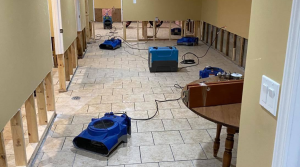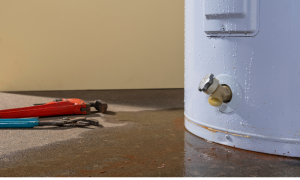How to Prevent Water Leaks and Flooding in the Basement Due to Heavy Rain?
Home » How to Prevent Water Leaks in the Basement Due to Heavy Rain?
This is a common question that pops up in everyone’s mind. A heavy and persistent rain creates moisture and saturates the soil which results in hydrostatic pressure, pulling the water down through the basement walls and floors. Secondly, when gutters and drains get clogged up after a heavy storm, the lingering water pool ends up creating a lateral pressure onto the basement walls. Likewise, if there are any cracks and holes in the wall or if the windows are not properly installed, then it can lead to water leakage that can cause flooding in the basement.
There are 8 things that you can do to prevent flooding in the basement from rain. If any of these suggestions fail, then it is time to call our water damage restoration professionals who can help you with the water removal and repair the damage that is caused to your home.
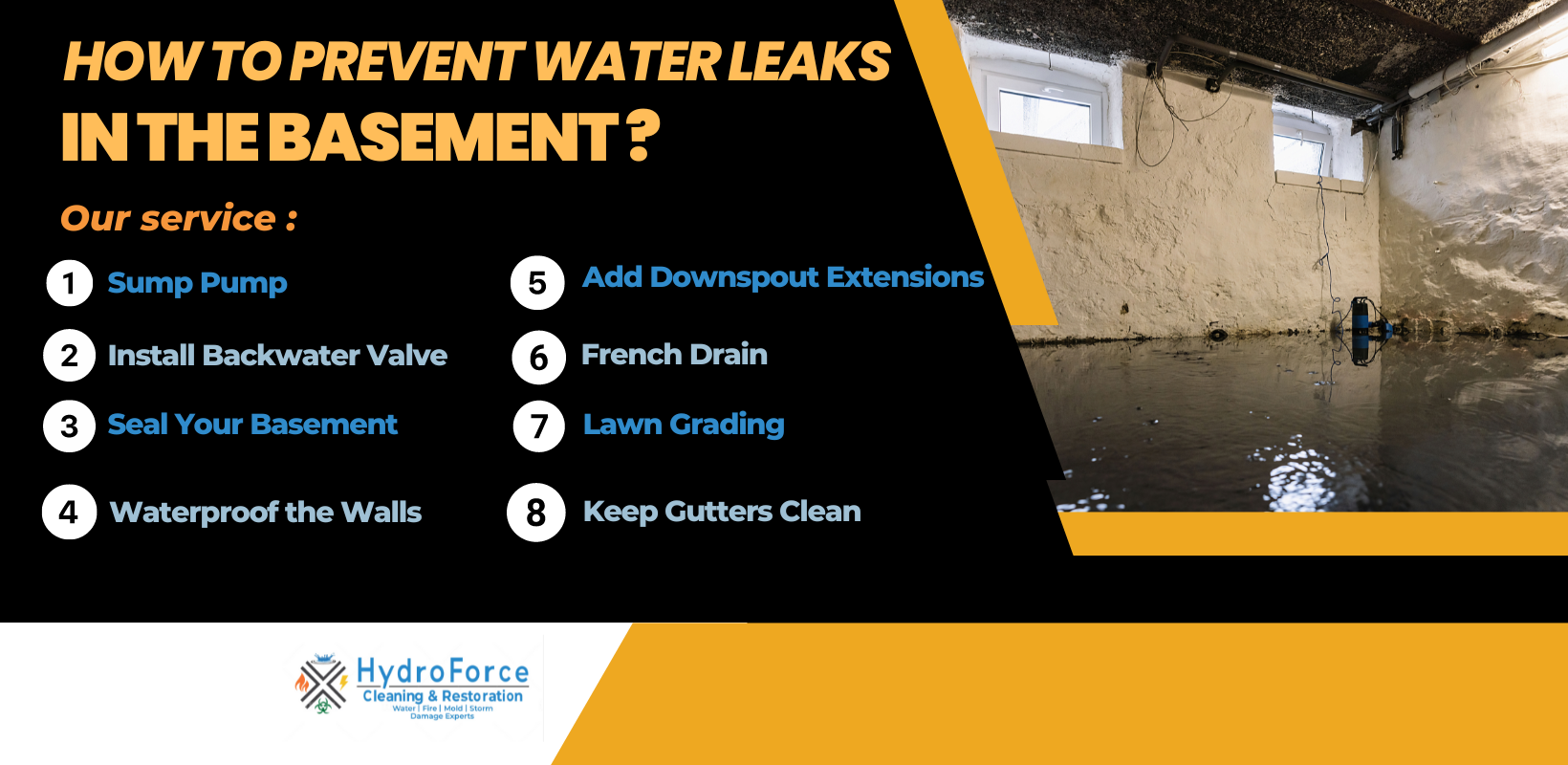
8 Simple Tips to Protect Your Basement from Flood Damage:
1. Sump Pump:
Sump pumps are an excellent asset that can save your basement from flooding by pulling the water out of the area and redirecting it into another drain or outlet that is away from your home’s foundation. It is usually installed in the lowest part of your basement. Having a sump pump can save you from the water damage and mold problems that are usually caused after a flood. There are two main types of sump pumps, pedestal and submersible sump pump. Usually, submersible sump pumps are more expensive than the pedestal ones, but they are more durable and efficient.
2. Install Backwater Valve:
A sudden storm can overwhelm city sewer lines, causing water and sewage to flow back into your home through your plumbing system. Thus, having a backwater valve installed in the sewer system of your home can stop sewage from flowing back in and protect your bathroom and basement from dangerous flooding and sewage backups.
3. Seal Your Basement:
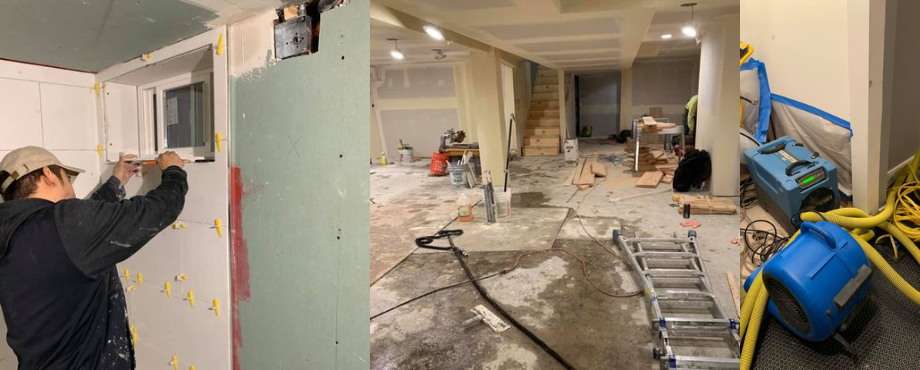
One of the most important things that you can do to flood proof your basement is seal the openings and visible cracks with a sealant or waterproofing membrane to prevent any kinds of leaks or dripping water into the area. In addition, add new caulking around the windows, doors, and pathways to keep the water out of the area.
4. Waterproof the Walls:
Sometimes there are hidden cracks that can cause serious water damage in your basement. We recommend you use a waterproof membrane that can be brushed onto the walls and ceilings of the basement to prevent any invisible leaks and water dripping issues. You can also use sandbags to protect windows and doors outside your home and prevent water from leaking through any cracks or openings.
5. Add Downspout Extensions:
Downspout extensions are a great way to keep draining water away from the foundation of your property and save it from flooding. If there are any faulty gutters, then there is a higher chance of water infiltrating your basement. Adding a longer downspout will ensure that the water drains far enough away from the home to avoid leaks and flooding in the basement. There are at least 6 types of downspout extensions to choose from such as aluminum, rain chute, splash stone, stealth flow pipe, buried drainpipe, and plastic extension.
6. French Drain:
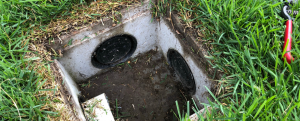
Installing a French drain prevents flooding and saves money on water damage and other remediation services. It usually lasts for 20 to 30 years. If water continues to permeate your basement after trying the above-mentioned tips, then a French drain can help. French drains look like a perforated pipe that is installed 8 to 12 inches below the ground and surrounded by gravel, rocks, and landscaping materials. The purpose of this is to prevent surface and ground water from entering your property and the basement.
7. Lawn Grading:
Your entire landscape and yard should be graded downhill from the home which can prevent water from pooling near your home’s foundation. Poor lawn grading that leads to the accumulation of water near the foundation is the main cause behind floods and water leaks in the basement. However, if you need to regrade your yard, then we recommend you hire a landscaping contractor and a professional who can help you grade the soil.
8. Keep Gutters Clean:
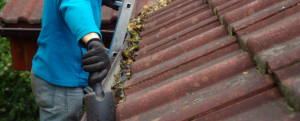
Verify that your downspouts and gutters are clean and free of debris at least three times a year. Clean and well-maintained gutters prevent flooding and will save your basement from getting exposed to any flooding or contaminated water. If you’ve got leaky and aging gutters, then it is important to replace them with new ones because even if you clean those old gutters, they may still leak.
For Basement Flood Cleanup, Call Hydroforce Cleaning and Restoration
Whether your basement has flooded due to excessive rain, a pipe burst, or any other cause, we are available 24/7 to provide water damage restoration services. Our technicians are certified and trained to deal with emergencies like basement flooding repair, mold removal, flood damage cleanup, water extraction, and water damage restoration. Removing the standing water is important to prevent serious structural damage and mold growth that can lead to other issues. To book an appointment, call us today at 630-835-0862.
2024 © Copyright HydroForce Cleaning and Restorations – All Rights Reserved.
Privacy Policy | Terms & Conditions | 630-835-0862

